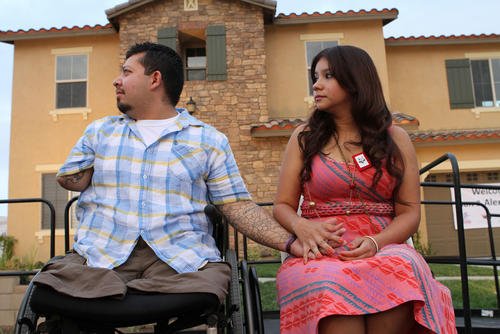Getting into better physical condition is on the minds of a lot of folks, me included. The last couple of years have also been a tough time for many families' finances, so that might be your "get in shape" focus area.
Here are six ideas that can work, whether you're hitting the pavement in your personal battle of the bulge or looking to strengthen your financial health.
1. Start from the Bottom
- Physical: I'm going to date myself here, but I think I was about two years into my military journey when the Army decided that wearing boots for the two-mile Army Physical Fitness Test wasn't a pathway to healthy feet. In the time since then, I've run several marathons and quite a few half-marathons and that has driven home the importance of good shoes. Don't skimp on this one.
- Fiscal: To get your fiscal fitness program going, a solid foundation includes creating a budget ... and more importantly, utilizing it. Consider it a training program for your finances. You can do it in four steps: Know where your money goes, know where it should go, adjust as necessary and stay committed. Speaking of committed, stick with your plan, but also update it as your situation and needs change.
2. Get the Right Coverage
- Physical: The ladies in my family are fond of saying, "You gotta look good, to feel good, to do good." Beyond how you look, though, it's important to wear gear that enhances your exercise efforts. For example, clothes made with synthetic fibers that draw away moisture can be helpful. On the other hand, cotton clothes hold water and promote chafing -- a problem whether running a marathon or trekking around the neighborhood.
- Fiscal: Just as wearing the wrong running gear can expose you to the elements, inadequate insurance coverage can expose you to financial risks. Review your auto and homeowners insurance policies with your insurance company and to ensure you have the right coverage. Given the skyrocketing costs associated with auto repairs and rising home rebuilding costs, now is a great time for this exercise. If you have an adequate emergency fund in place, consider raising your deductibles to lower your premiums. If you're renting, renters insurance can provide valuable protection.
3. Make Healthy Choices
- Physical: Make good eating part of your daily routine with a healthy mix of bread, vegetables, fruit, milk and meat. An hour before you head out, have a snack, such as a cup of orange juice or half a bagel. Hydrate. Be sure to drink plenty of water or sports drinks while you're exercising.
- Fiscal: An unhealthy financial diet can ruin your finances. What is unhealthy? Carrying a balance or making minimum payments on credit cards, failing to capture all of your employer's matching contributions and operating without an emergency fund all come to mind.
4. Be Mindful of Weather Changes
- Physical: Exercise and outside activities are a beautiful thing, until they aren't. Take care when raising the intensity of your workouts, especially in the type of extremely hot weather we are seeing this summer.
- Fiscal: Prepare for a rainy day by saving some money each month to build an emergency or "rainy day" fund. Work toward saving the equivalent of at least three months of basic living expenses. Start by setting up automatic transfers in a set amount of $25 or $50 -- whatever you can afford. It may take time to reach your goal, but it's a lot like preparing for a marathon, one workout or contribution at a time.
5. Add a Little Variety
- Physical: Many runners supplement their running with low-impact exercises like swimming, bicycling or yoga. Weightlifting with lightweight dumbbells is simple and produces results. You can lift weights in your bedroom every morning or in the evening while watching TV. Yep, variety is the spice of life.
- Fiscal: Just as you might not get the physical results you're looking for with one type of exercise, the same applies to investing. Ensure your investments are spread across different asset classes, such as large domestic companies, small international companies or real estate. Determine your tolerance for risk and rebalance your portfolio annually. Diversification is a technique to help reduce risk. There is no absolute guarantee that diversification will protect against a loss.
6. Find the Right Partner
- Physical: Work out with other people. It makes life much easier. There may not be a lot of conversation or interaction, but there is support and encouragement. And when you don't want to get out there and exercise, your friends can convince you. A good partner or training group is indispensable.
- Fiscal: Similarly, a partner in finance -- like a financial planner or coach -- may help you achieve your financial goals. They can help you create a budget, develop a plan to reduce debt, select the right kind and amount of life, disability and property insurance, and make informed tax-planning recommendations.
So go ahead and get two for one -- train your body and your finances for better health all around.
Get the Latest Financial Tips
Whether you're trying to balance your budget, build up your credit, select a good life insurance program or are gearing up for a home purchase, Military.com has you covered. Subscribe to Military.com and get the latest military benefit updates and tips delivered straight to your inbox.










